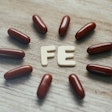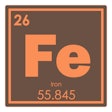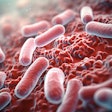
Aside from cream and sugar, small molecules produce coffee's distinctive feeling in the mouth, according to research presented on August 24 at the virtual American Chemical Society (ACS) meeting.
Researchers led by principal investigator Christopher Simons, PhD, explored four coffee attributes experienced in the oral cavity: chalkiness, mouth coating, astringency, and thickness. They found that particular molecules contribute to what they called coffee's "mouthfeel" as well as its taste.
Melanoidin compounds produced coffee's astringency, while 3- and 4-caffeoylquinic acid produced mouth coating. The findings could help coffee makers better refine processing and roasting conditions, according to a statement from the ACS.
"We've known that coffee itself can impact textural sensations, and it was traditionally thought to be because of sugars and lipids," Simons, an assistant professor of food sciences and technology, said in the statement. "But our team finds that this feeling may actually be driven by small molecules, which is kind of unique."



















